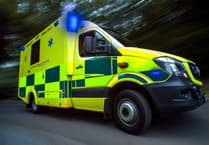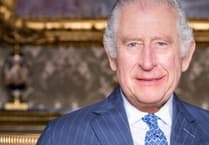According to a new report titled The Dental Crisis in Cornwall, all NHS practices in Cornwall have not been accepting new adult NHS patients. The study by a health watchdog also found that one in 10 people living in the Duchy have been on a waiting list to see a NHS dentist for more than ten years.
Healthwatch Cornwall’s study, which was carried out last year, found that there are long waiting times for NHS dental care, lack of access to urgent care and major obstacles including travel and communication in receiving treatment which especially affects children, rural residents and vulnerable groups. The report was discussed at a meeting of Cornwall Council’s health scrutiny committee today (Wednesday, October 8), with members agreeing that a Cabinet member should write to the Government asking for more financial help towards emergency dentistry in the county.
Debbie Gilbert, chief executive of Healthwatch Cornwall, told the meeting that 61 per cent of the 1,185 respondents said they didn’t know how to access NHS dental help at all. “One in ten told us they had been on the waiting list for more than ten years and only 13 people had ever received an update about their place on it.”
She added: “Parents told us their children – some aged three, seven and even 11 – have never seen a dentist. The result is postcode-based inequality and for some that means self-treatment at home.”
Ms Gilbert said that 53 per cent had paid privately for treatment. Over half of those couldn’t afford it but did it anyway. “We heard from residents taking on debt, travelling to Somerset and beyond for care and expectant mothers unable to use their entitlement to free NHS treatment.”
She asked the committee to request regular publication of waiting lists by locality, average wait times and successful placements so progress is visible to the public. She also asked that preventative programmes to be expanded to the most deprived areas.
The report, which included input from over 90 dental practices in Cornwall, states: “There is a significant lack of NHS dental services across Cornwall, with 100% of NHS practices in Cornwall not accepting new adult NHS patients at the time of research. This has led to a surge in dental emergencies, increased hospital admissions for extractions and dangerous attempts at self-treatment.
“Underfunding and systemic problems within the NHS dental care system are at the root of the crisis. Recruitment and retention of dental professionals is a significant issue, with many dentists reducing NHS commitments or transitioning to private practice. All of the dental practices included in this report said they have faced challenges in recruitment of staff in the last 24 months.
“High living costs and Cornwall’s remote location contribute to these challenges. Certain areas, particularly North Cornwall, face severe shortages in dental services. Limited public transport options further restrict access for many residents. The dental crisis is placing undue pressure on GPs, A&E departments and other healthcare services [which are] ill-equipped to handle dental issues.
The NHS Cornwall & Isles of Scilly Integrated Care Board (ICB) has made commitments based on the report, including creating over 1,000 additional emergency appointments and a new Patient Prioritisation Framework. The findings have additionally helped to shape its 2024-26 Dental Strategy.
Cllr Susanne Desmonde asked for verification that NHS dentists are paid just £12 an hour. When she was told that was correct, she replied: “It’s just not acceptable. It’s why everyone who can afford it goes to a private dentist and not everyone can afford to do that. We need to do something about this. My own dentist in Falmouth has had to bring in someone from Germany.”
Eunan O’Neill, director of public health at Cornwall Council, thanked Healthwatch Cornwall for the report. “It’s not a great story to tell but it’s important we’re having this conversation.” He added that NHS dentists aren’t paid for the hour but by the level of treatment, so the £12 an hour payment figure wasn’t quite correct as it is a more complex issue than that.
Kirsty Lewis, whose ICB team commissions dental services across Cornwall and the Isles of Scilly, said that its unit of dental activity cost is £34.67, as opposed to the national request which is £28. “We are almost in line with what the British Dental Association want, which is £35. Although finance is an issue, we are committed to making sure we provide sufficient funding to encourage NHS dentistry. We have had a significant decrease in the number of NHS contract terminations because of the fact that we are investing in NHS dental services.”
Cllr Drew Creek said: “I believe that the number one reason for admittance to the Royal Cornwall Hospital in children is in fact to do with dental crisis and I think that outlines the issue we’re facing.” He added that Cornwall could lead the way in dealing with the situation “with how innovative we are with our integrated neighbourhood teams”.
Mr O’Neill added: “It’s a complicated picture but I think, in Cornwall, my colleagues have been listening to what has been raised by the public and by Healthwatch. We are working on ways to make things better.”
Cllr Steven Webb said: “At the moment I don’t have a NHS dentist. I’m terrified to have a check-up because I’m worried work needs doing and I can’t afford that work. That’s the reality. I haven’t had a check-up for the last two years. That’s going to be a problem for the NHS at some point.” He was concerned that a large number of people in Cornwall don’t currently have access to emergency dental care.
He said all the things being done locally were great, but the problem would only be solved by government nationally.
The key recommendations set out in the report include: Introducing flexible NHS contracts to target vulnerable and high-need patients on a local level.
Improve the management of the NHS dental waiting list. Fostering open, transparent, and bilateral collaboration among stakeholders.
Launching a public communication campaign to educate residents on dental care and services. Enhance recruitment and retention of NHS dentists.
Implement a mobile dentist service to provide accessible dental care directly in communities, addressing barriers to traditional services and promoting better oral health outcomes.
The committee agreed to write to the Government to ask that its review of fairer funding includes help for emergency dental services in Cornwall. Members were assured that health service partners have been working within the current constraints to address access to dental services in Cornwall.





Comments
This article has no comments yet. Be the first to leave a comment.